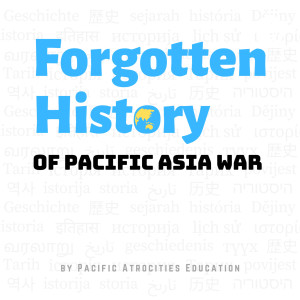
Episode 21: U.S. and Britain's Debates on Post-WWII Negotiations for Thailand
 2020-07-15
2020-07-15
The United States and Britain, though supported by the Free Thai movement’s espionage throughout the war, had staunch differences and perspectives when it came to post-war negotiations. The United States took a more forgive-and-forget stance as the country and its underground, independence movements had been one of the main reasons the allies were able to wine back Southeast Asia from the Japanese. The U.S. did not wish to dissolve Thailand’s military as it did Japan, but rather, find ways to liberate all areas of the country from Japanese control. The British were more skeptical and called upon potential repercussions and punishments against the nation.
Book
Siamese Sovereignty: Thailand's Strategy of Political Duality During World War II
References
1. Tarling, Nicholas. "Atonement Before Absolution: British Policy Towards Thailand During World War II." Journal of the Siam Society 66 (1978): 22-65.
2. Zakaria, Fareed. From wealth to power: The unusual origins of America's world role. Vol. 82. Princeton University Press, 1999.
3. F.C. Darling, Thailand and the United States, Washington, 1965, p. 41-43.
4. J. Crosby, "The failure of constitutional government in Siam", Asiatic Review, XXXIX (October 1943), 420. 3 J. Crosby, "Observations on a postwar settlement in South-East Asia", International Affairs, XX, 3 (July 1944), 362.
5. Voa, and Voa. “American History: The Rise of US Influence After World War Two.” VOA, VOA, 3 Aug. 2011, learningenglish.voanews.com/a/american-history-the-rise-of-us-influence-after-world-war-two-126735008/116180.html.
More Episodes
 2020-09-21
2020-09-21
 2020-08-21
2020-08-21
Create your
podcast in
minutes
- Full-featured podcast site
- Unlimited storage and bandwidth
- Comprehensive podcast stats
- Distribute to Apple Podcasts, Spotify, and more
- Make money with your podcast
It is Free
- Privacy Policy
- Cookie Policy
- Terms of Use
- Consent Preferences
- Copyright © 2015-2024 Podbean.com




